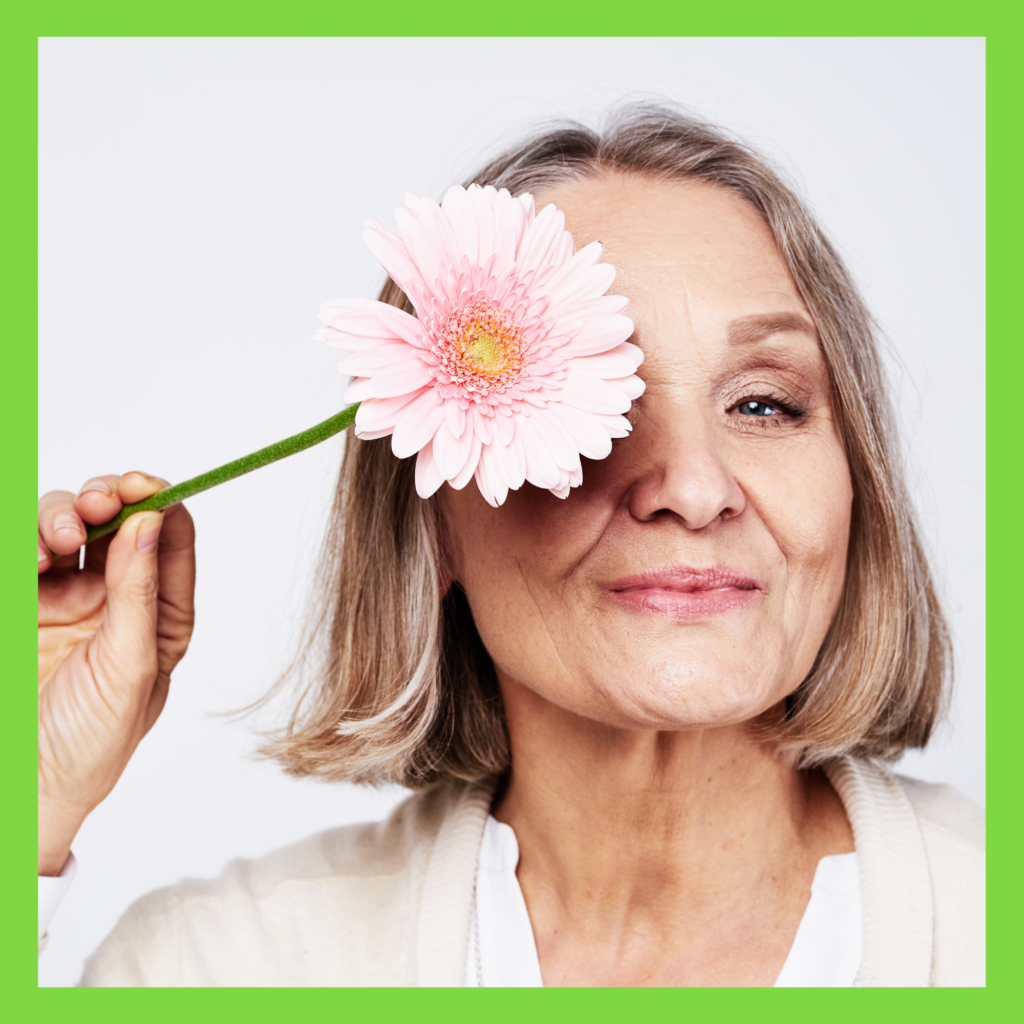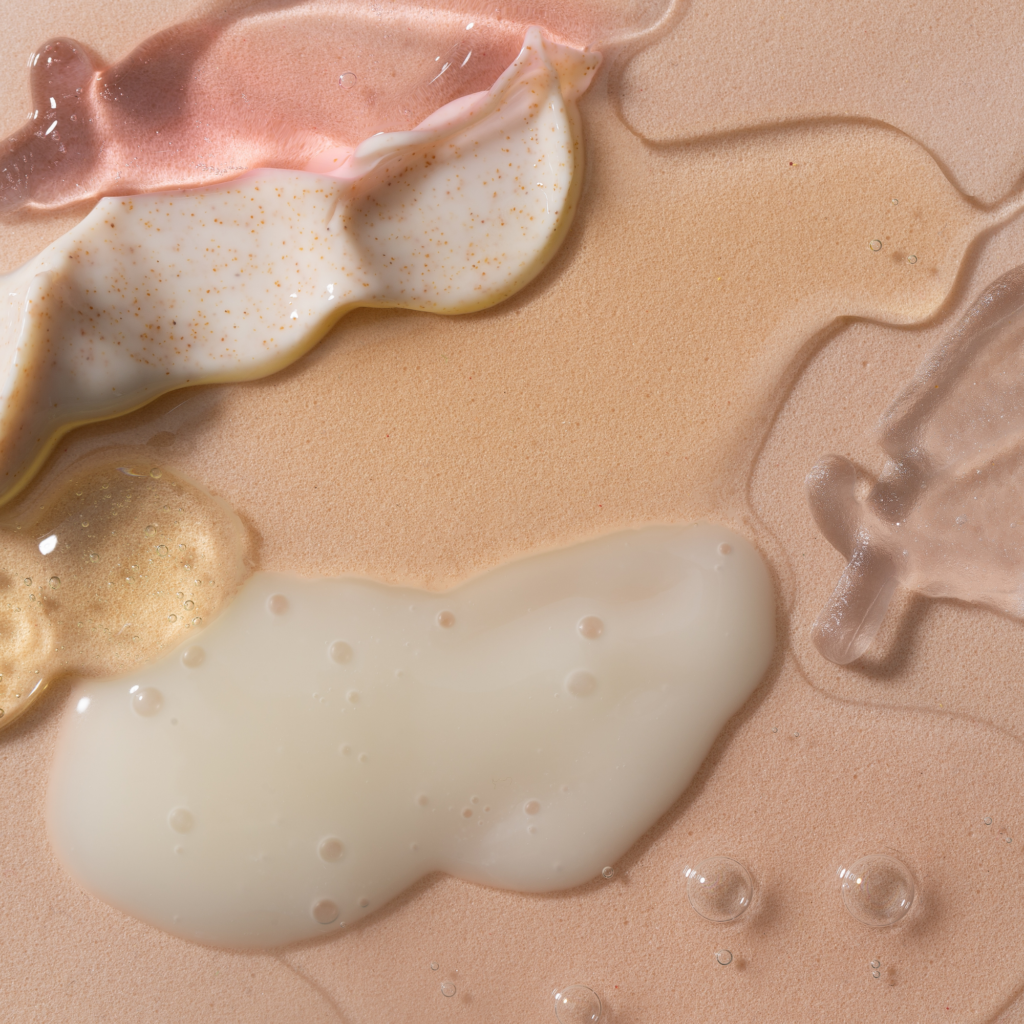Understanding Menopause and Its Impact on Skin
Menopause is a natural biological process marking the end of a woman’s reproductive years, typically occurring between the ages of 45 and 55. While menopause brings significant internal changes, it also dramatically impacts the skin. As hormones fluctuate, you may notice increased dryness, wrinkles, thinning skin, and sensitivity. These changes can feel daunting, but with the right skincare routine, products, and treatments, it’s possible to maintain radiant, healthy skin throughout this stage of life.
In this guide, we’ll explore the common skin issues faced during menopause, the hormonal changes that drive them, and effective skincare strategies to help you look and feel your best.

Hormonal Changes in Menopause and Their Effects on Skin
During menopause, levels of estrogen and progesterone—two key hormones—decline. This hormonal shift significantly affects the skin, leading to:
Increased Sensitivity: Fluctuating hormone levels can cause the skin to become more reactive, leading to redness, irritation, and sensitivity.
Loss of Collagen: Estrogen plays a critical role in collagen production, which keeps the skin firm and elastic. As estrogen levels decrease, collagen production slows down, leading to thinner, sagging skin.
Reduced Oil Production: Lower estrogen levels also reduce the skin’s natural oil production, causing dryness.
Slower Skin Cell Turnover: As hormonal changes occur, the skin’s natural regeneration process slows, leading to a dull complexion and more pronounced wrinkles.
Common Skin Issues During Menopause and How to Combat Them
1. Dryness
As oil production declines, the skin becomes drier and more prone to dehydration. Here’s how to combat dryness:
Hydrating Serums: Incorporate serums containing glycerin or squalane to add an extra layer of hydration before applying your moisturizer.
Moisturize Daily: Use a rich, hydrating moisturizer that contains ingredients like hyaluronic acid and ceramides, which help lock in moisture.
Use Gentle Cleansers: Avoid harsh soaps or cleansers that strip the skin’s natural oils. Opt for creamy cleansers that maintain moisture balance.
2. Thinning and Sagging Skin
The loss of collagen and elastin can make the skin look thinner and less firm.
Collagen-Boosting Ingredients: Use products with retinoids, peptides, and growth factors to stimulate collagen production and improve skin elasticity.
Facial Exercises: Incorporating facial yoga or firming exercises can help strengthen the muscles under the skin, making it appear more toned.
Firming Creams: Look for creams containing retinol and vitamin C, which help to firm and brighten the skin.
3. Wrinkles and Fine Lines
Wrinkles become more pronounced as the skin loses elasticity and moisture.
Retinoids: These vitamin A derivatives boost collagen production and smooth out fine lines and wrinkles. Start with a lower concentration to avoid irritation.
Antioxidants: Ingredients like vitamin C, niacinamide, and coenzyme Q10 help protect the skin from environmental damage and promote a youthful glow.
Hydration: Keeping the skin well-moisturized helps plump up fine lines, making them less visible.
4. Sensitivity and Redness
Hormonal fluctuations can lead to increased skin sensitivity and conditions like rosacea.
Calming Ingredients: Look for products containing aloe vera, chamomile, and niacinamide to soothe irritation.
Avoid Harsh Exfoliants: Switch to gentle exfoliation methods, like enzymatic exfoliants, which are less likely to irritate.
5. Adult Acne
Fluctuating hormone levels can lead to breakouts, even if you didn’t experience acne in your youth.
Salicylic Acid: This beta hydroxy acid helps to unclog pores and reduce acne breakouts without drying out the skin.
Retinoids: Retinoids can help clear up acne while addressing fine lines and wrinkles.
Non-Comedogenic Moisturizers: Use oil-free, non-comedogenic products that won’t clog your pores.
Skincare Routine for Menopausal Skin
A consistent and targeted skincare routine can address the challenges menopausal skin faces.

Here’s an ideal routine for morning and evening:
Morning Routine:
- Cleanse: Use a gentle, hydrating cleanser.
- Tone: Apply an alcohol-free toner with soothing ingredients like rose water or chamomile.
- Serum: Use a hydrating serum with hyaluronic acid or vitamin C for antioxidant protection.
- Moisturizer: Apply a rich, nourishing moisturizer to lock in hydration.
- SPF: Finish with a broad-spectrum SPF 30 or higher, as sun protection is crucial for preventing further skin damage.
Evening Routine:
- Cleanse: Double cleanse with a makeup remover and a gentle cleanser.
- Exfoliate (2-3 times per week): Use a gentle exfoliator to remove dead skin cells and promote skin renewal.
- Retinoid or Night Serum: Apply a retinoid or peptide-based serum to boost collagen production overnight.
- Moisturize: Finish with a hydrating night cream to nourish and repair the skin while you sleep.
Hydration and Moisturization
Hydration is essential to maintain plump, glowing skin. Here are ways to ensure your skin stays hydrated during menopause:
- Hyaluronic Acid: This powerful humectant attracts and retains moisture, making it a staple ingredient for menopausal skincare.
- Drink Plenty of Water: Hydrating from within is just as important. Aim for at least 8 glasses of water a day.
- Occlusive Moisturizers: Use moisturizers with ingredients like shea butter and petrolatum to prevent moisture loss.
Best Anti-Aging Products for Menopausal Women
Some of the best products for menopausal skin include:
- Moisturizers: Look for options containing ceramides, shea butter, and hyaluronic acid for intense hydration.
- Serums: Peptide and vitamin C serums are great for stimulating collagen production and brightening the skin.
- Night Creams: Retinoid-based creams are excellent for nighttime repair, helping to smooth wrinkles and improve texture.
Lifestyle Changes for Healthy Skin
Your lifestyle plays a big role in maintaining healthy, radiant skin during menopause. Here are some tips:
- Diet: Eat foods rich in omega-3 fatty acids (found in salmon, flaxseeds, and walnuts), which help strengthen the skin barrier and keep it hydrated.
- Exercise: Regular physical activity improves circulation, bringing oxygen and nutrients to the skin.
- Sleep: Aim for 7-8 hours of sleep per night to allow your skin to repair itself.
- Stress Management: High levels of stress can trigger skin flare-ups. Practice mindfulness techniques like yoga or meditation to reduce stress.
Professional Treatments for Menopausal Skin
For those looking for professional help, several non-invasive treatments can improve skin quality during menopause:
- Botox: Reduces the appearance of wrinkles by relaxing facial muscles.
- Fillers: Add volume to areas affected by sagging or thinning skin.
- Laser Treatments: Stimulate collagen production and improve skin texture.
- Chemical Peels: Remove the top layer of dead skin cells to reveal fresher, more youthful-looking skin underneath.
DIY Skincare Tips
Natural remedies can also help menopausal skin. Try these simple, effective solutions:
Avocado and Honey Mask: Hydrate dry skin with a blend of mashed avocado and honey. Leave it on for 15-20 minutes before rinsing.
Cucumber and Aloe Vera Gel: Soothe sensitive skin with a cooling cucumber and aloe vera gel mask.
Oatmeal Scrub: Exfoliate gently with finely ground oats mixed with a little water or milk to remove dead skin cells.
Flaxseed Benefits for Mature Skin: Incorporate flaxseed into your routine to benefit from its rich omega-3 fatty acids. Flaxseed can help improve skin hydration and elasticity. For more details on how to use this, check out Flaxseed Benefits for Mature Skin: How to Use the Gooey Substance for a Youthful Glow.